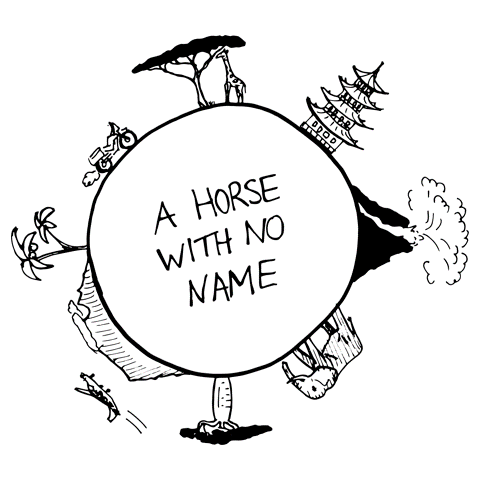
“I’ve been through the desert on a horse with no name
It felt good to be out of the rain”
America – A Horse With No Name (1971)
When retelling a story long after the fact it is sometimes difficult to separate our own experiences from what we have been told by others. Likewise it can be difficult to distinguish between what actually happened, and how we wish things had happened. We remember moments, and people, for how they made us feel, while forgetting much of what exactly was said and done. Pictures evoke broad narratives better than the precise facts of the past outside their frame.
Travel is at times a boring and exhausting affair, yet our desire to present an interesting, consciously experienced take on the world leads to condensed stories and omitted embarrassments. In film, a final cut is shorter than the raw footage, and one cannot invent additional scenes when the cameras are gone. Stories on the other hand might be enhanced by new experiences. Entire scenes can be omitted, or recalled as separate encounters, depending on the audience and the mood of the narrator. The result is slightly different versions of the same story, told to different people at different times. None of those exact versions of events may have happened, but generally all of them could have happened.
Until committed to writing, stories exist in a permanent state of editing, some of it unconscious, some of it fed by primitive desire or noble intentions. For some time now I have wanted to write down my stories, to make them immutable, like an insect in amber. I am delighted to present to you the places I have been, the stories I was told, and the people that touched me. But the reader has been warned. All this happened, more or less.